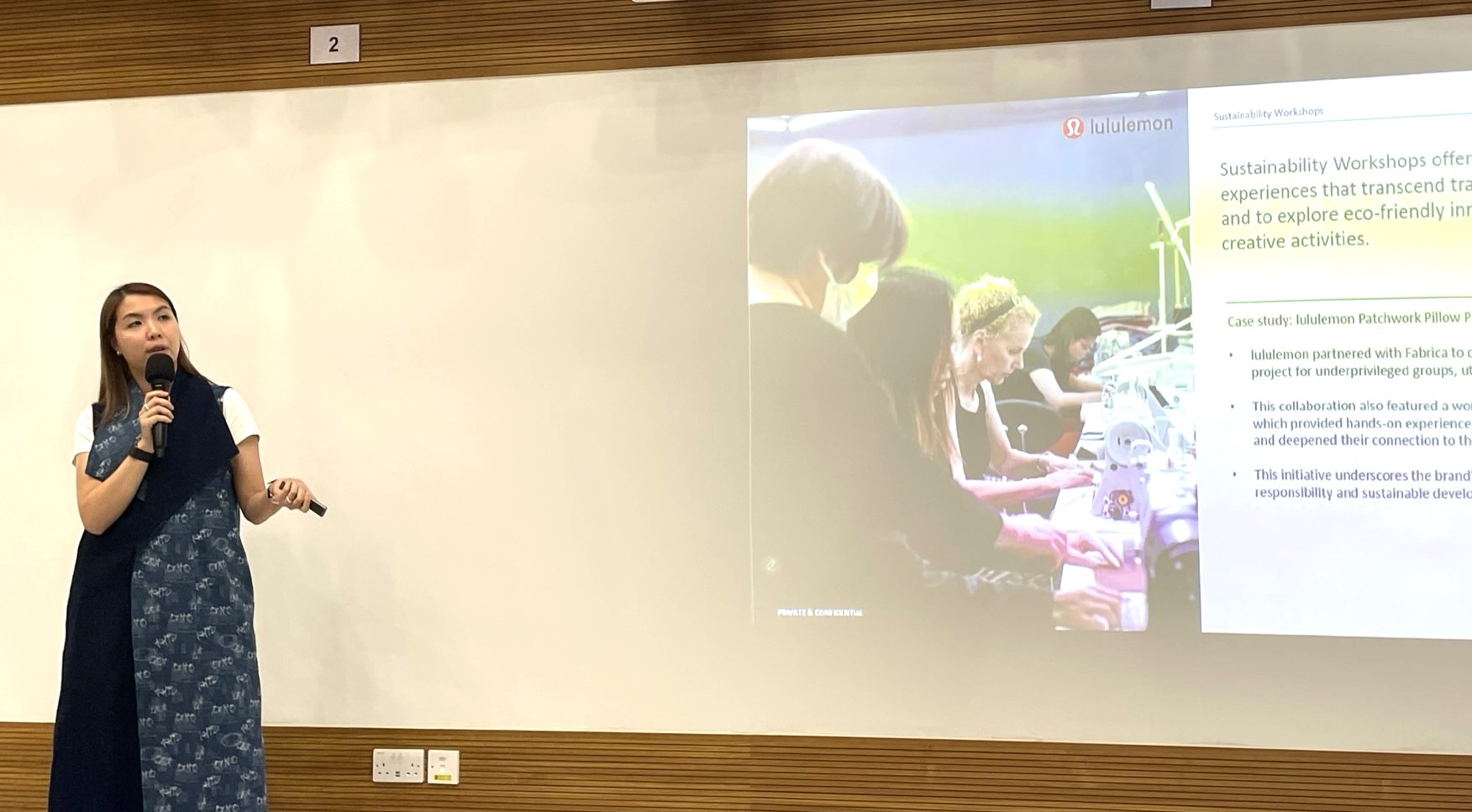Launch Day (20 Sep 2025)
Launch Day Presentation Slides
Basic information about the event rules, prizes, and entrepreneurship pathways.
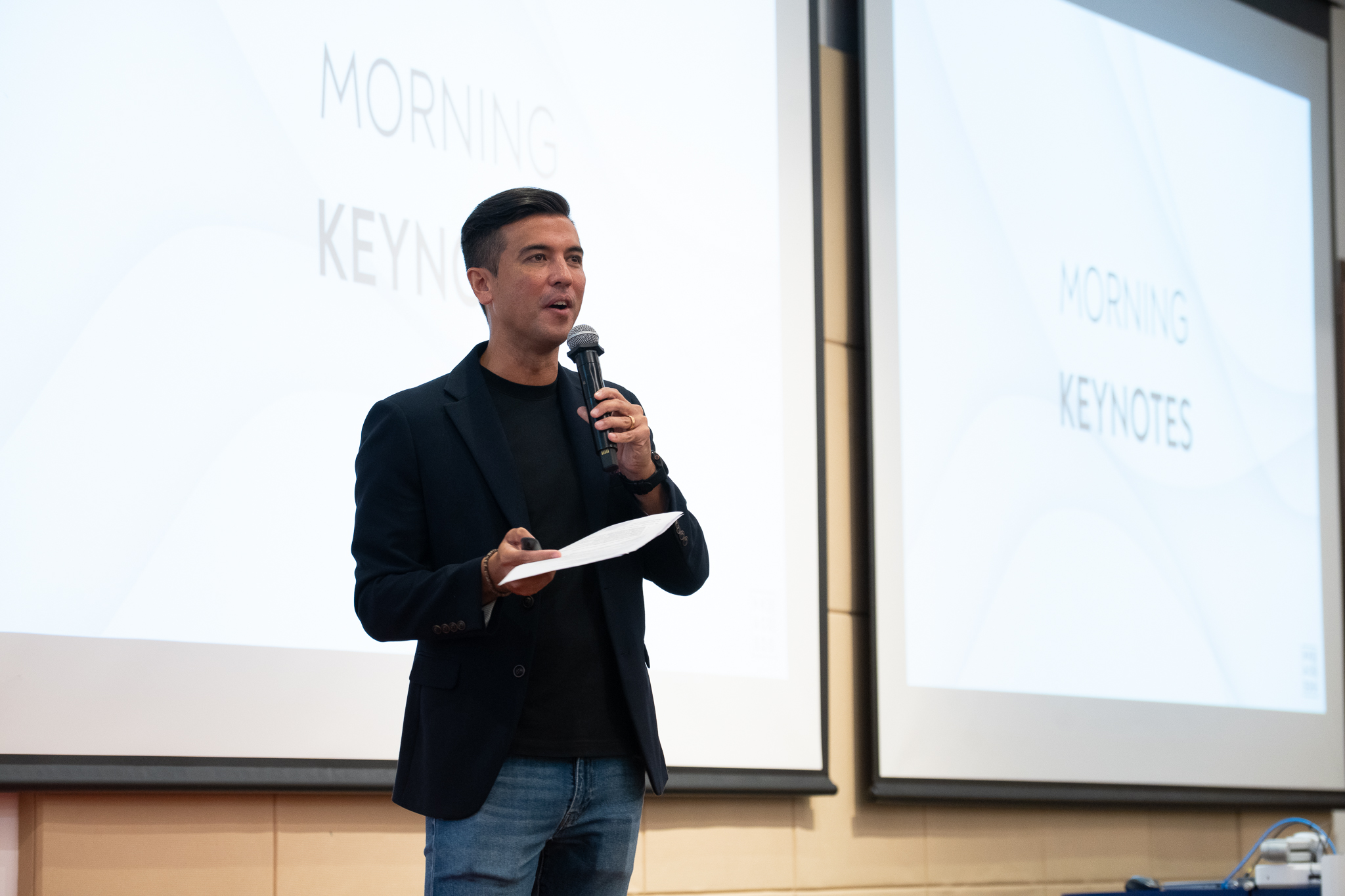
Designing Ethical AI Solutions in an Agentic World (By Brian W Tang, LITE Lab HKU)
Brian W Tang’s presentation “Designing Ethical AI Solutions in an Agentic World” explores the transformative rise of AI agents and “1-person unicorns,” demonstrating how student teams can create no-code AI agents by combining six key components: brain (LLM), tools, brainstem (orchestration), external knowledge, instructions, and environment. Tang introduces the Chiron Human-Working-In-The-Loop (HWITL) ethical governance framework, which addresses critical concerns across different human roles in AI systems—from data preparers dealing with bias and copyright issues to end-users facing challenges of synthetic data pollution and AI misuse. The talk highlights the emergence of sovereign LLMs across Asia (from Hong Kong’s HKGAIv1 to regional efforts like SEA-LION.ai) that embed local linguistic and cultural values, while emphasizing the importance of red teaming AI solutions to identify biases, safety issues, and hallucinations before deployment.
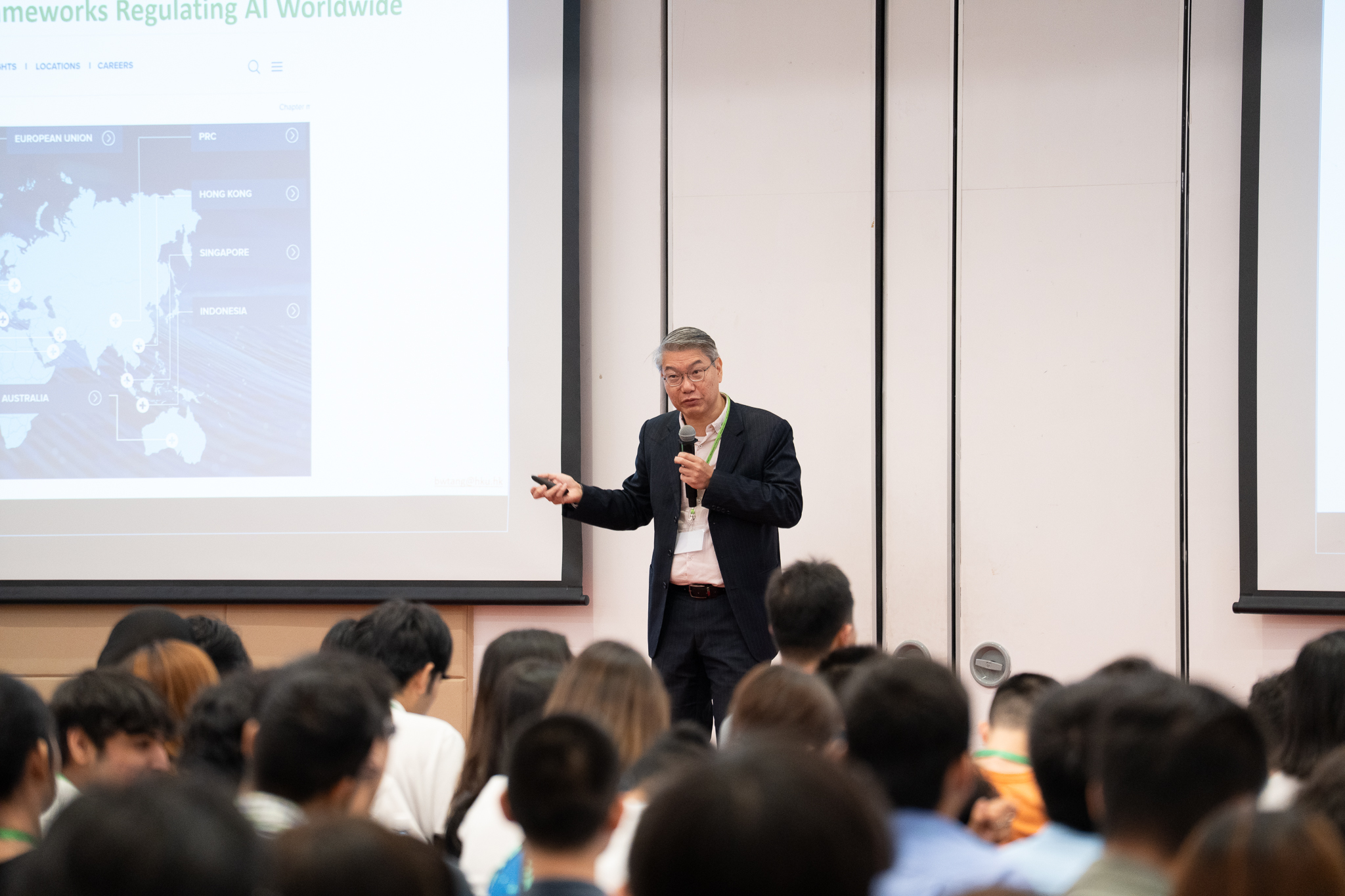
Generative AI for Design Thinking (By Dr Jac Leung, HKUST)
Dr. Jac Leung’s presentation “GenAI for Design Thinking” provides a practical framework for integrating generative AI throughout the design thinking process. GenAI can enhance each stage of the double diamond model—from discovering user needs through synthetic user personas and interview protocols, to developing ideas with AI-powered brainstorming and mind-mapping, to delivering solutions via no-code prototyping and automated user testing. The talk introduces 18 essential criteria for evaluating AI solutions targeting SDGs, illustrated through champion examples like Khan Academy for educational alignment, Google’s AI for Social Good addressing bias, and Duolingo for engagement, emphasising the importance of factors such as accessibility, data privacy, and cultural inclusivity.
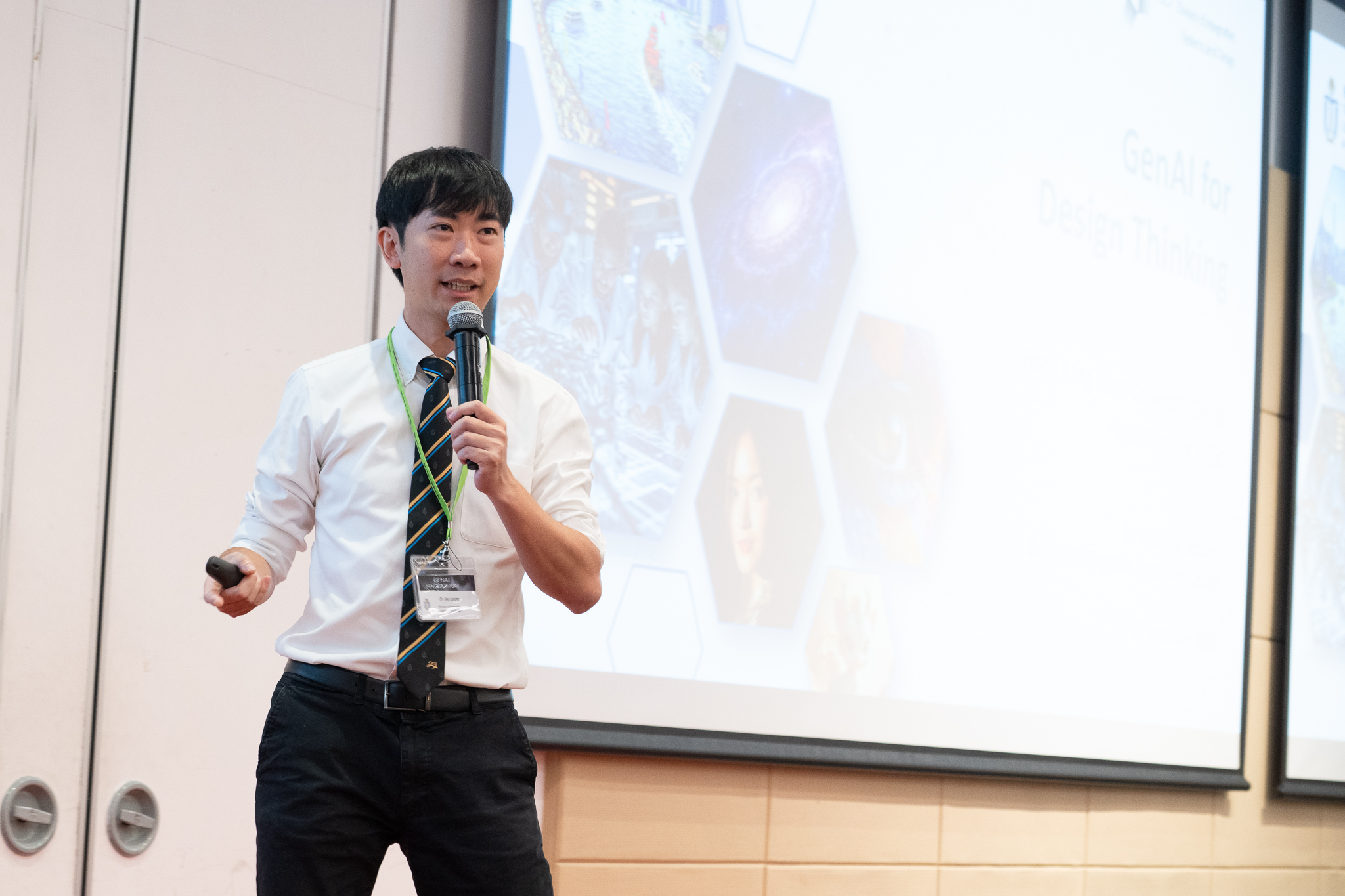
Generative AI for Cultural Preservation: Where Memory Meets Machine (By Diana Pang, Arup)
Diana Pang’s talk “Where Memory Meets Machine: Preserving Heritage in the Age of Gen AI” explores how generative AI be used to restore, revitalise, and reimagine endangered cultural elements—from languages and rituals to architecture and artifacts. While highlighting GenAI’s potential in heritage preservation, Diana addresses critical challenges including bias in training data, cultural sensitivity concerns, issues of data ownership and consent, and questions of authenticity, using examples from Indigenous communities in Canada, Taiwan, and Australia. The presentation concludes with a focus on Hong Kong’s specific heritage preservation challenges across social, technological, economic, environmental, and political dimensions.
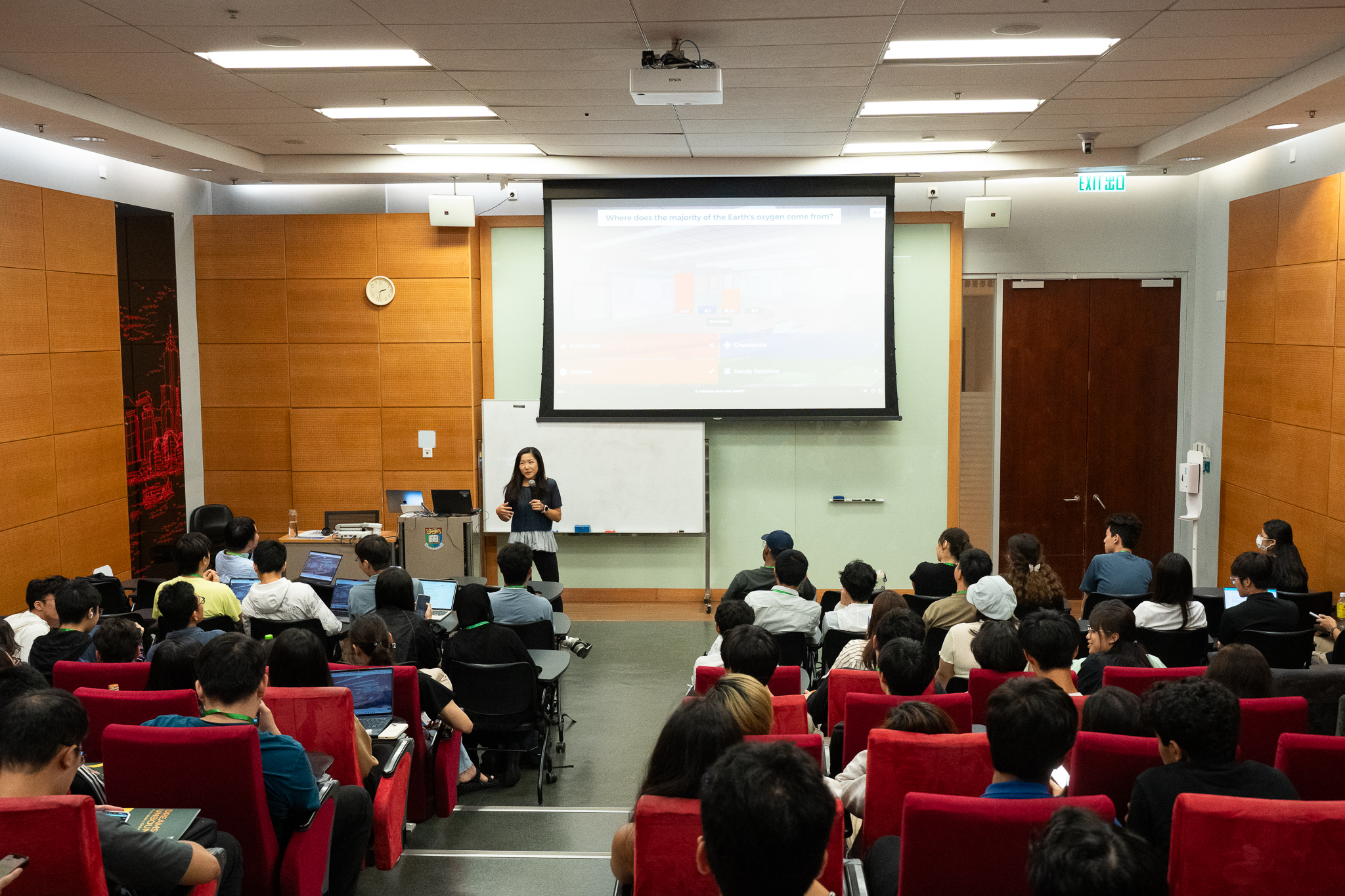
Bring Your Ideas to Life with Vibe Coding (By Marvin Ma, YouWare)
Many young creators have bold, imaginative ideas—but turning those ideas into working prototypes can be a challenge. That’s where YouWare comes in. The workshop supports participants’ experiences with vibe coding, a groundbreaking approach that harnesses generative AI to convert abstract thoughts and emotions into fully functional, shareable websites. Whether you’re building for a hackathon or exploring creative tech, the Youware no-coding AI platform empowers rapid prototyping with minimal friction.
Workshop Recording: https://youtu.be/Z3SrZCCh_VU
All hackathon participants receive exclusive access to:
– Free development credits to build and launch prototypes on the YouWare platform (Link)
– Dedicated Q&A support to help you navigate and master Youware (Link)
(The workshop is co-organized with City University of Hong Kong)
Tongyi Workshop by Alibaba Cloud (Raymond Tsang)
Scaling Sustainable Ventures and Impact Investing: Lessons from The Mills Fabrica
This inspiration and informative talk starts with Cintia personal journey and passion in sustainability. She then explains the concept of planetary boundaries and how this connects with impact investing and the distinctions with traditional (for profit) investment and philanthropy (non-profit). Cintia then shares her experience leading The Mills Fabrica in incubating and funding of early-stage ventures to tackle climate change, resource scarcity, and other urgent planetary challenges. She unpacked how mission-aligned capital and industry partnerships could drive systemic shifts by supporting technologies and business models that respect planetary boundaries and create long-term economic and social value. She shared Mills Fabrica’s unique business models and venture investment strategy for innovation in the fields of sustainability, techstyle, and agrifood, demonstrating some real-world examples. This session offered insights for students and teachers interested in social entrepreneurship, impact investing, and sustainable innovation.
Workshop recording: https://youtu.be/CEJOghiggD0
